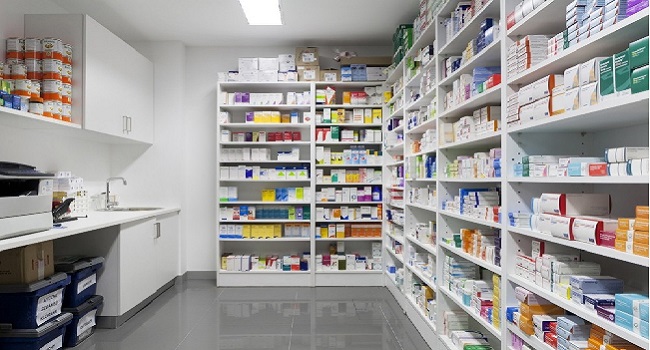The Pharmacy Council of Nigeria (PCN) has taken a firm stand in its ongoing battle against illegal pharmaceutical practices by shutting down more than 400 illegal medicine shops in Cross River State. This decisive action reflects the council’s commitment to ensuring that the quality, safety, and efficacy of medications in the healthcare system are upheld to the highest standards.
In addition to the closures, the PCN also apprehended five individuals involved in the illicit sale of medicines. These actions were confirmed in a recent statement by Pharmacist Stephen Esumobi, the Director of Enforcement for Cross River State, who emphasized the council’s determination to protect public health. Esumobi revealed that the shutdowns and arrests resulted from an extensive inspection campaign carried out across the state, aimed at scrutinizing the operations of drug dealers.
The comprehensive inspection campaign saw PCN officials survey approximately 500 pharmaceutical premises. The outcome of this rigorous inspection was the closure of 405 establishments, which included 31 pharmacies, 174 patent medicine shops, and 200 shops selling illegal medicines. The five individuals arrested were found to be selling medicines without proper authorization, directly contravening the regulations set forth by the PCN.
 Pharmacist Esumobi highlighted the critical need for regulatory compliance among drug dealers, pointing out that enforcement actions like these are vital to maintaining the integrity of Nigeria’s healthcare system. He underscored the importance of proper oversight, explaining that unregistered establishments often lack the necessary safeguards to ensure that medicines are stored and dispensed correctly. This lack of oversight can lead to the distribution of substandard or unsafe pharmaceutical products, posing significant risks to public health.
Pharmacist Esumobi highlighted the critical need for regulatory compliance among drug dealers, pointing out that enforcement actions like these are vital to maintaining the integrity of Nigeria’s healthcare system. He underscored the importance of proper oversight, explaining that unregistered establishments often lack the necessary safeguards to ensure that medicines are stored and dispensed correctly. This lack of oversight can lead to the distribution of substandard or unsafe pharmaceutical products, posing significant risks to public health.
The PCN’s actions are not just about enforcing compliance; they are also about safeguarding the health of the Nigerian population. Esumobi noted that many of the illegal medicine shops shut down were found to have inadequate storage conditions, which can severely affect the quality of the drugs. Exposure to high temperatures, humidity, and direct sunlight can degrade medicines, rendering them ineffective or even harmful. These conditions were prevalent in the shops that were sealed, raising serious concerns about the potential health risks posed by the sale of these degraded drugs.
Moreover, Esumobi explained that the PCN issued five compliance directives to establishments that were found to be in violation of the council’s regulations. These directives are part of the council’s broader strategy to ensure that all pharmaceutical outlets adhere to strict standards of operation. By enforcing these standards, the PCN aims to create a safe and reliable pharmaceutical distribution chain that guarantees access to high-quality medications for all Nigerians.
The council’s enforcement efforts underscore its unwavering dedication to ensuring that every Nigerian has access to effective, safe, and reliable pharmaceutical products. This commitment is particularly crucial in a country where the prevalence of counterfeit and substandard medicines has posed a significant challenge to public health for many years. By cracking down on illegal medicine shops and unlicensed dealers, the PCN is taking proactive steps to eradicate these threats from the healthcare system.
In conclusion, the recent crackdown in Cross River State is a clear message from the Pharmacy Council of Nigeria that it will not tolerate illegal practices that jeopardize the health of the public. Through diligent enforcement and regulatory oversight, the PCN is working tirelessly to ensure that the pharmaceutical industry in Nigeria operates in a manner that prioritizes the safety and well-being of all citizens. The council’s actions are a vital part of a broader effort to build a robust, trustworthy, and effective healthcare system in Nigeria, where the quality of medicines is never compromised.




